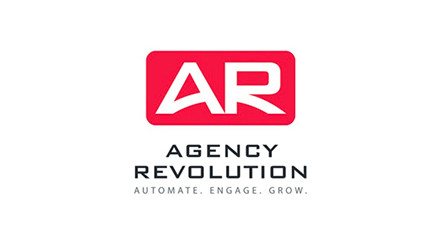
How (and why) you should run your insurance agency like a dominant NFL team starting now!
With the NFL season right around the corner, I got to thinking — the parallels between a successful NFL football team and a successful insurance agency are almost mind blowing when you stop and think about it.
In fact, whether you’re a football fan or not, there is a lot to learn from how an NFL team is run and structured. There are strategies and concepts there that can, at least from a strategic standpoint, can and should be adopted in your agency, right now.
First, let’s break down the way an NFL organization is run, and how it compares to how an insurance agency could be run.
You ready?
Ownership, Management & Coaching (Agency Owner/Partners)
Duties: Recruiting • Talent Evaluation • Hiring • Compensation • Mentoring • Performance Monitoring • Forecasting • Company Culture
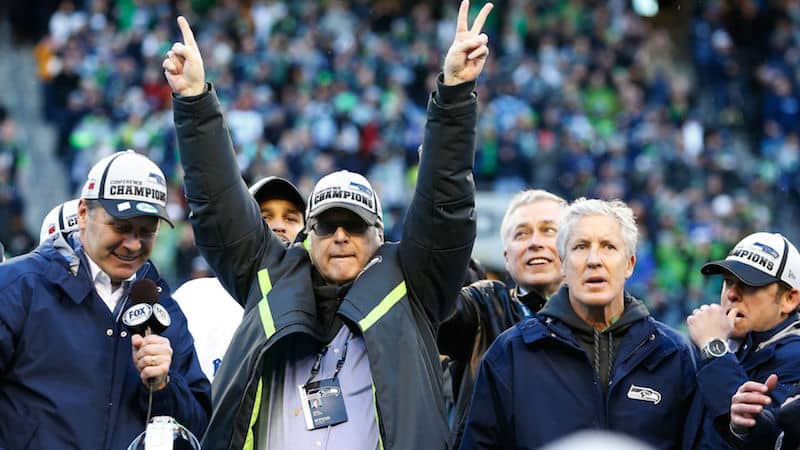
In an NFL organization, and sometimes like an insurance agency, there are a lot of moving parts when it comes to “front office” activities. First, you have the ownership group, which could be comprised of several partners, or just one or two people.
You have the scouting team, which is typically comprised of multiple individuals who are scouting on a per-position basis. They’re responsible for leaving no stone un-turned when it comes to finding talent.
You have the General Manager who is overseeing the coaching and scouting operations as well as player contracts and financial considerations.
You have the coaching staff which is typically a team of coaches, from the head coach to the assistant coaches, down to the position coaches and even trainers.
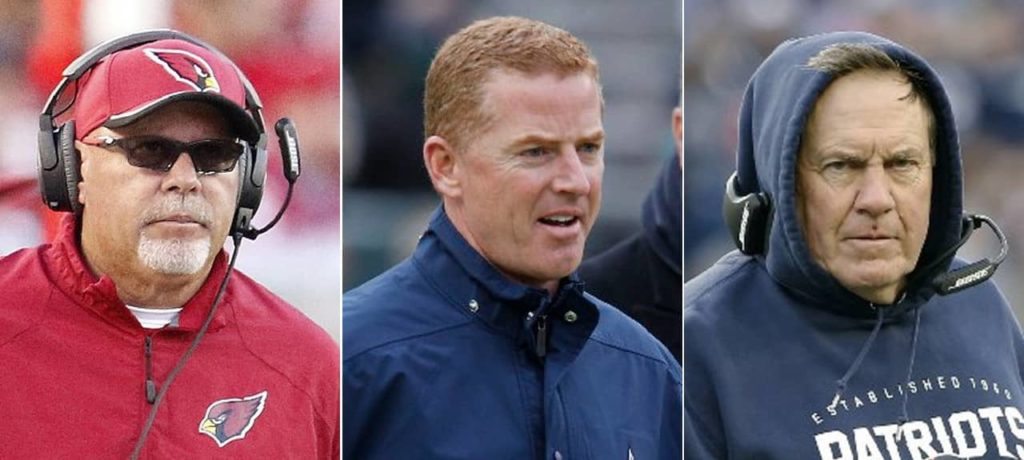
In order for an NFL team to be successful, it’s critical that these parties are all on the same page, and have the same goals in place. (You would think that would be implied, but there are plenty of bad examples of this not being the case in both the NFL and the insurance industry.)
It doesn’t matter what type of organization you are, when there are too many cooks in the kitchen, things can be much harder to accomplish than they need to be. Some of you might be smirking now, but you know it as well as I do.
However, in and insurance agency setting, it’s common for all of these duties and responsibilities to be handled by a very small group of people — maybe even just one person. When that’s the case, it’s critical for you to have a process or system in place that allows you to handle the various “front office” duties efficiently.
In the insurance space, that “system” is often times either you yourself, another agency manager/partner, whose sole job is to plan, organize and manage a team of producers and CSRs. For smaller agencies, software programs like Namely or BambooHR can help small to mid size agencies (who don’t have the budget to hire our outsource their human resource needs) manage their “front office” duties easier, and from one place.
The point here is that like an NFL team, success in your agency starts at the very top. It starts with the Owner of the team/agency, and the processes, workflows and culture that are established by those parties. In order for the team to be successful, the owner, GM, and coaches needs to be present, and actively engaged with the rest of the organization.
Think outside the box when staffing your agency
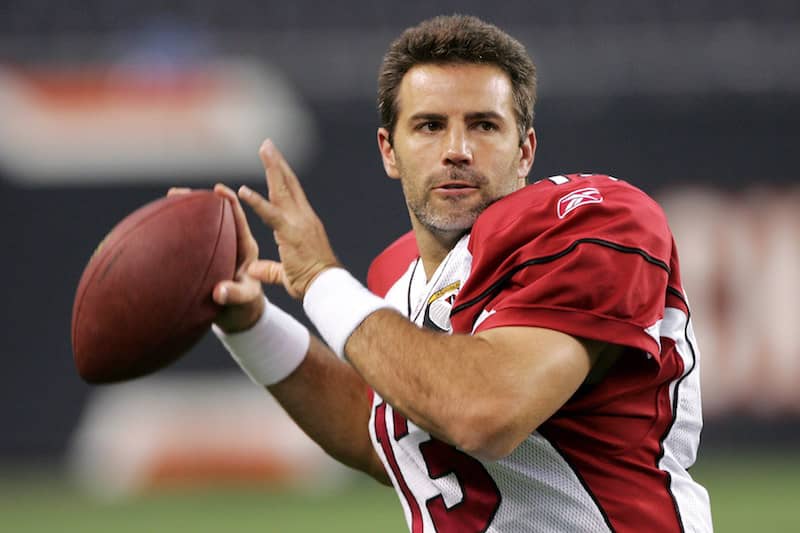
Kurt Warner went from bagging groceries, to Arena League, to likely Hall Of Famer
NFL teams aren’t foolish enough to assume they will have a #1 draft pick every year that will actually work out. Likewise, you can’t assume you’ll find diamond-in-the-rough producers or CSRs to carry you either. They don’t grow on trees.
Like an NFL scouting department needs to find talent, agency owners should not hesitate to look outside of the insurance industry for sales and support people who could flourish with some guidance.
The most successful NFL franchises are those who are built through the draft, and there have been plenty of late round picks, and even un-drafted players who turned out to be franchise players, like Kurt Warner for example.
In the NFL, trying to sign the best free-agent every off-season has proven to be an unreliable and often risky solution that backfires more times than it works out. The same goes for insurance agencies. It’s expensive and difficult to recruit and hire seasoned producers and CSRs.
The good ones are already taken, so you often times have to over-pay to acquire them, and there’s no guarantee that person is going to fit in with the way you do things at your agency anyway. It’s literally just like football.
There needs to be a foundation for your talent to grow, so they can develop and become reliable players. Like and NFL organization, agencies with un-developed players, no processes, no culture, no mentoring, and poor communication are agencies that will fail.
Many of the agencies we’ve consulted seem to view producers and CSRs as plug-and-play pieces that they can acquire, and then leave on an island with little or no help. This is a paradigm that needs to be flushed from your memory bank.
Instead of looking to hire an established CSR or producer, look outside the industry for personalities that can be molded into the position you need. Did the employee at the local sporting goods store blow you away with their customer service or attention to detail?
It might be time to have a conversation with them. People aren’t born into the insurance industry, they are molded into it.
The Championship Offense (Producers, Marketing & Sales)
Duties: Networking/Referral Nurturing • Relationship Building • Content Creation • Selling

In order for an NFL team to be successful long term, it needs to have a dynamic, creative, and unpredictable offense that can put points on the board consistently. In particular, it needs a deep playbook, and talent — whether acquired or developed.
Star players who can put the team on their shoulders, and do things that other players simply aren’t capable of. Players who are just a different breed.
This “star player” is known in the insurance world as a “Rainmaker”.
The wild Unicorn of a producer who can prospect, network, and flat out bring premium in the door day in and day out with little or no coaching. The guy who makes agency owners look good.
The agency owners dream — someone who will sell huge accounts all day while you’re skimming Facebook or golfing.
I kid. Sort of.
If you’re an agency owner reading this, you might be lucky enough to have one of these stud horses on your team (and hopefully you’re treating them well). If you’re not that lucky, you know how hard it is to find that person, which is why it all goes back to your “front office” capabilities of recruiting and coaching (see above).
If you’re a small agency maybe the Rainmaker is you, but if not, you know as well as the next guy that in order to be successful long term in an industry as competitive as the insurance space, you need talented (or well coached) salespeople who can write good premium like an NFL team needs gifted players.
One thing you must not forget as an agency owner is this: Never take on more than you can handle, and never delegate your core competencies. If you are the owner and the best salesperson in your agency, then you need to be the Rainmaker.
With that being said, there are some ways that you can get help for some of the marketing and outreach that your agency needs to be doing.
NFL Offenses are evolving; Your sales & marketing mentality needs to as well
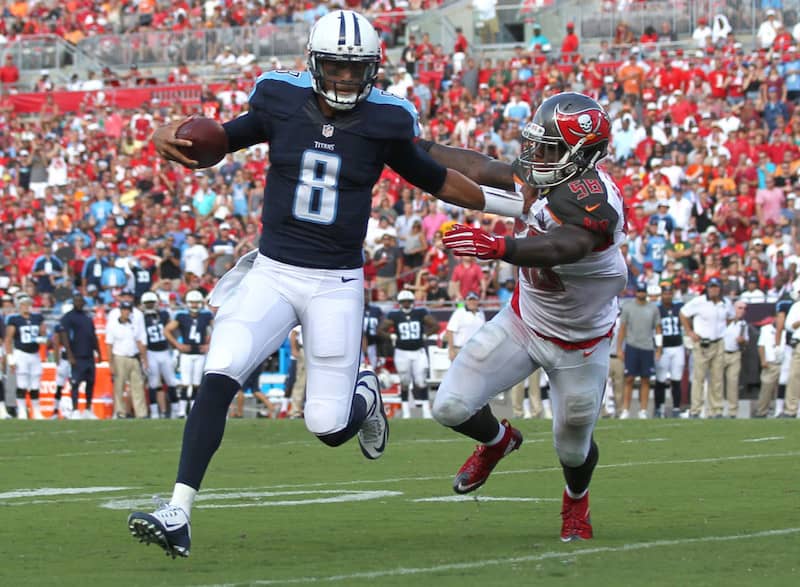
I mentioned a minute ago that you need a deep playbook to score points in the NFL. If you run the same 10 plays over and over again, teams will figure you out. Likewise, you have to switch things up with your marketing in your agency. Insurance agencies have been running the same, well, 3 plays over and over again for 50+ years.
The same value proposition and offer have been regurgitated over and over again to the point where the insurance consumer can’t differentiate a great agency from and average one, and they simply tune out your message because they have what’s called in the marketing world as “offer fatigue” a.k.a., they’re sick of what you’re saying.
There was a point in time when the only way people knew how to sell insurance was to walk up to someones door and knock. There was pretty much no marketing at all.
It was strictly a game of aggressive, interruption-based tactics.
For all the new mediums and strategies that are out there that make the process of marketing way easier, and selling superfluous, there are still a lot of agencies operating under this old-school mantra.
Agencies who still manage their agency from a spreadsheet, or who don’t believe in digital marketing or buying leads — who still ask their producers to cold call, and canvas neighborhoods and car dealerships.
Not only is that an extremely low-percentage approach, but it’s difficult to find producers who can consistently operate successfully under this type of “offensive system”.
Take a look at modern day NFL Offenses
When is the last time you saw an I-Formation in an NFL offense? Teams don’t even use it on goal line plays anymore.
I-Form Offense = Cold Calling
More and more teams are running predominantly up-tempo systems, going to 5 receiver sets, spreading out the defense and creating matchup nightmares with their skill position players. The Fullback position has all but been eliminated from the sport entirely. Speed is prioritized over size at nearly every position.
Quarterbacks like Cam Newton, Marcus Mariota, Russell Wilson and Aaron Rodgers are giving offenses an entirely new dynamic with their arm strength and equally effective athletic ability.
If an NFL team of today tried to play like the NFL teams of old — 3 yard runs between the A-gap in a cloud of dust, they wouldn’t win a single game. It’s a different offensive league.
Not only that, but when you look at high-school and college football and the offensive systems that are run at those levels, it’s becoming harder and harder to find players that fit the “old school” NFL systems because modern day players are being born into completely different systems, with different rules. NFL teams are adapting though.
Don’t run your offense (marketing & sales) like the 64′ Packers
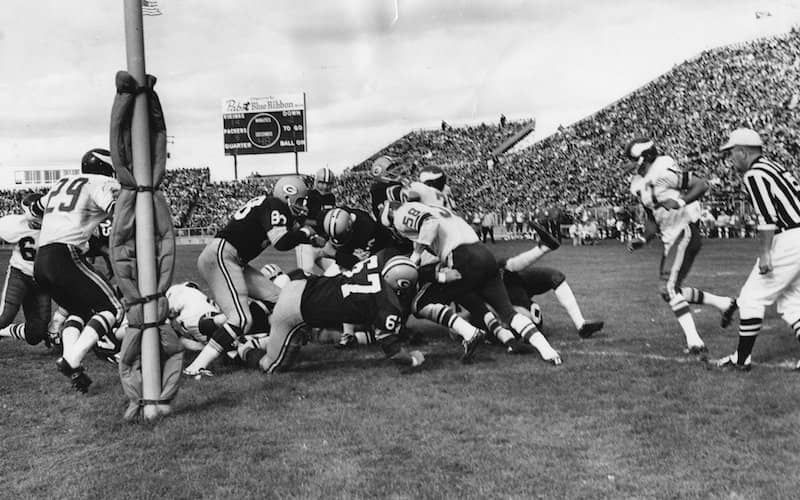
You can’t run your marketing and sales like it’s still 1975. You can’t even run it like it’s 2005. If you do, younger, hungrier competitor agencies will quickly out-pace you at every level — because folks, they are out there.
You can’t milk the clock in this business. You need to run your agency like an up-tempo offense.
Things move too fast in this industry and customers expect an on-demand experience. Be creative, dynamic, and unpredictable with your marketing (and customer service) efforts.
Interruption based, and direct response marketing isn’t going anywhere, but it’s very much the equivalent of kissing the baby
It’s simply not as effective as it once was. People see through it. You can make the argument that it’s not effective at all based on the habits of the modern consumer.
People, especially millennials, are simply tuning it out.
The NFL realized this not that long ago…
The game is changing folks, and while the NFL has gotten to the point of a billion dollar enterprise with those 3 yard, A-gap runs, they realize that the average fan wants a different experience, and have changed their rules repeatedly to allow for more offense and points to be scored, because well, that’s the experience that the modern day fan responds to.
They realize that in order for them to sustain the same level of success, they’ll have to continue to adapt to the systems and talent that are surrounding their league, but also to consumer demand. They saw the creativity and a new way of doing things and embraced it instead of ignoring it.
Your marketing and sales approach is no different. Consumers are changing. They are digital, and you need to run a more dynamic offensive marketing system if you want to continue reaching them.
The 85′ Bears Defense (CSRs and Support Staff)
Duties: Policy service • Account Rounding/Cross Selling • Upselling • Claims Management
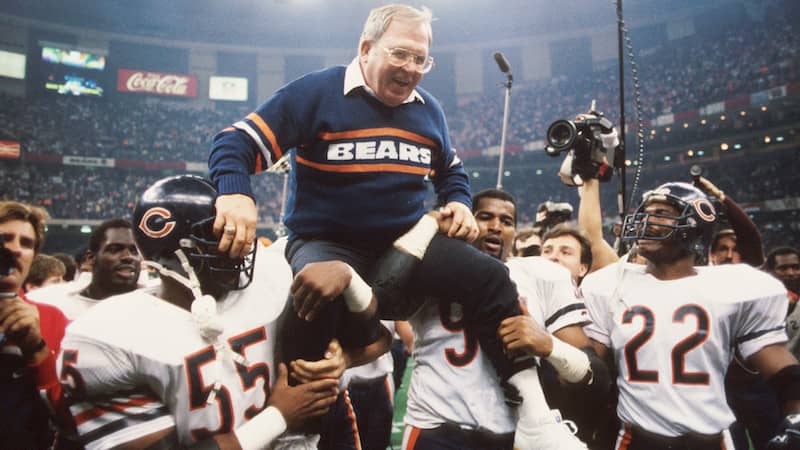
If you watch football you’ve heard the saying, “the best defense is a great offense”, and this is where the similarities between football and insurance sales differ a bit. In the insurance space, a great defense can actually lead to a great offense (in the form of referrals).
If producers are the offense of your agency, CSRs are the defense.
You can have the best offense in the league, but if you’re defense is giving up just as many points as you’re scoring, you’re going to be running in quicksand.
Educating your clients, policy servicing, account rounding, cross selling and the experience your customer has with you when they have a claim — these are things that build loyalty and locks those customers into your agency for life.
Your CSRs and other support staff are the backbone of your team. They are the “premium protectors”
I know plenty of agencies who are great sales organizations, but have terrible retention. They have a great offense, but no defense. That is a very tiresome way to run an agency, and the reality is, at the end of the day you need both a great offense and a great defense.
Conclusion
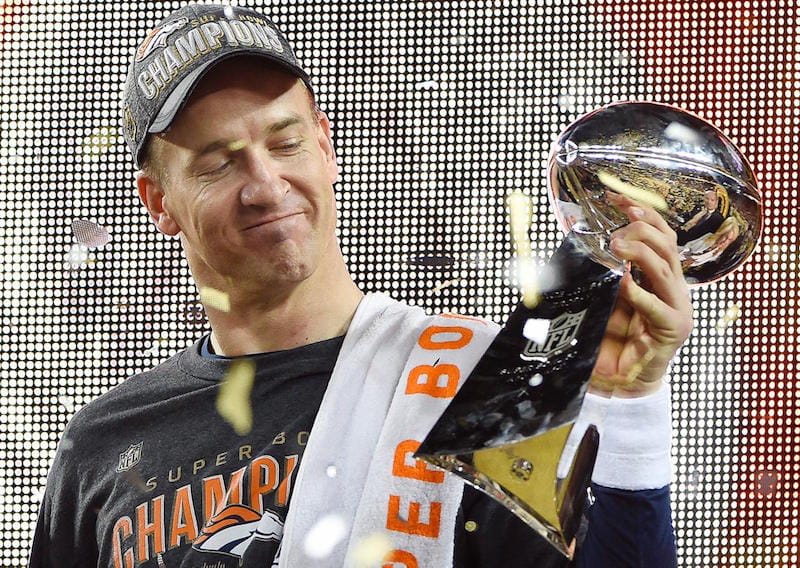
Like an NFL team, the front office, offense and defense all have to be operating in harmony to be successful. Running a successful insurance agency is no different. You have to be strong in all phases of the game, because competition is stiff, and great players are hard to come by.
If you’re an agency owner reading this, here are some key takeaways:
- Coach/mentor your staff
- Look outside of the industry for talent
- Have regular, open communication with staff/producers
- Don’t delegate what you do best
- Marketing makes the sale easier. Do more of it in different ways
- Your defense (retention) is what wins Championships
- Move faster!
Hopefully you found this helpful, and if there’s anything you’d like to add, be sure to leave us a comment below, or hit us up on social media!
